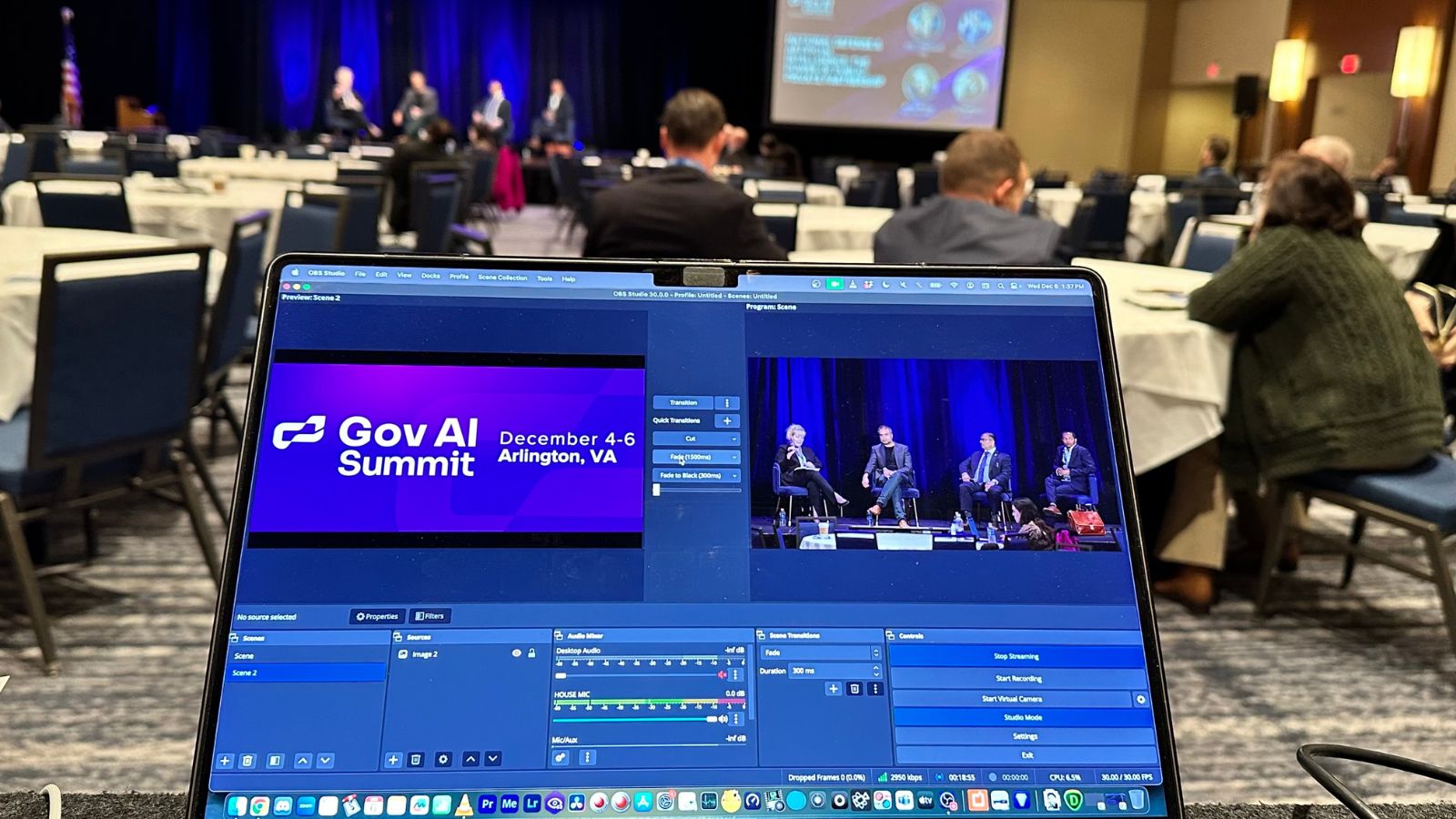
National Defense & Artificial Intelligence: The Power of Public-Private Partnership
The GovAI Summit is a two-day conference held on December 4-6 in Arlington, Virginia. The event covered the practical applications and the opportunities of AI in the public sector shared across. Amidst the vibrant discussions and innovative insights, one panel titled “National Defense & Artificial Intelligence: The Power of Public-Private Partnership” stood out for its focus on the pivotal role of public-private partnerships in the realm of national defense and artificial intelligence. The panel gathered esteemed experts to delve into the multifaceted landscape of collaboration between government entities and private industry players.
The discussion explored the growing importance of public-private partnerships in advancing AI technologies in the national defense sector. The experts discussed how collaboration between government agencies and private companies can enhance innovation, promote technology transfer, and accelerate the deployment of cutting-edge AI solutions for national security and defense. During the discourse, the panelists examined some of the challenges and opportunities in forging these partnerships, including navigating regulatory frameworks, addressing intellectual property issues, and balancing commercial interests with national security priorities.
Moderated by Amy Henninger, Senior Advisor for Advanced Computing at the U.S. Department of Homeland Security, the discussion benefited from the profound insights and experiences of the panelists, who brought diverse perspectives to the table. The panel consisted of: Ramesh Menon, Chief Technology Officer – Defense Intelligence Agency, Esube Bekele, Senior Technology Architect & Generative AI Lead – In-Q-Tel, and Rana Gujral, Chief Executive Officer – Behavioral Signals.
Ramesh Menon, Chief Technology Officer, SES at the United States Department of Defense, stated, That the “Defense Intelligence Agency is putting the finishing touches on a new artificial intelligence strategy designed to stop powerful new technologies in the pipeline from bypassing their human users on decisions leading to war or peace.“
“People who don’t use it effectively will probably be left out and probably have to shut down sometimes, depending on the type of industry and sector you are in,” Mr. Menon said. “So whether we like it or not, like it doesn’t matter.“
Ramesh Menon
Mr. Menon added that America’s spy agencies are working closely with private businesses. One example is Behavioral Signals, a self-styled “emotion-cognitive AI provider” that utilizes vocal analysis to decipher emotions, anticipate intent, and detect threat levels in any scenario.
Rana Gujral, CEO at Behavioral Signals, revealed that the company’s tech is readily applicable to call centers for businesses’ interactions with customers, and that in November it received an undisclosed sum from In-Q-Tel, the taxpayer-funded investment group financing tech startups on behalf of American spy agencies.
“It’s a tough job. You have an individual human there reacting to that information and have to make a call and AI can be a tool. Obviously the goal is not to replace that decision making by AI, but [to] offer another perspective, another tool to that decision making that needs to happen.”
Rana Gujral
Check the article at The Washington Times, U.S. military intelligence officials eye AI strategy to ensure machines don’t take charge.


